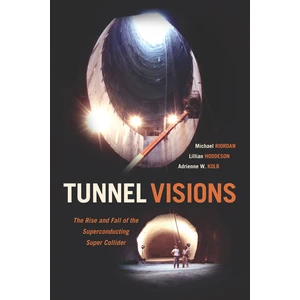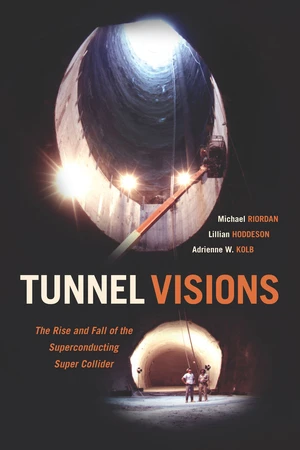Starting in the 1950s, US physicists dominated the search for elementary particles; aided by the association of this research with national security, they held this position for decades. In an effort to maintain their hegemony and track down the elusive Higgs boson, they convinced President Reagan and Congress to support construction of the multibillion-dollar Superconducting Super Collider project in Texasâthe largest basic-science project ever attempted. But after the Cold War ended and the estimated SSC cost surpassed ten billion dollars, Congress terminated the project in October 1993. Drawing on extensive archival research, contemporaneous press accounts, and over one hundred interviews with scientists, engineers, government officials, and others involved, Tunnel Visions tells the r
iveting story of the aborted SSC project. The authors examine the complex, interrelated causes for its demise, including problems of large-project management, continuing cost overruns, and lack of foreign contributions. In doing so, they ask whether Big Science has become too large and expensive, including whether academic scientists and their government overseers can effectively manage such an enormous undertaking.
more
Cheapest product
€29.88 | Ebooks.com USD | In stock
Do you have a better product in your shop?
Cheapest product
€29.88 | Ebooks.com USD | In stock
Do you have a better product in your shop?
Available in
What shops say
Ebooks.com USD
Starting in the 1950s, US physicists dominated the search for elementary particles; aided by the association of this research with national security, they held this position for decades. In an effort to maintain their hegemony and track down the elusive Higgs boson, they convinced President Reagan and Congress to support construction of the multibillion-dollar Superconducting Super Collider project in Texasâthe largest basic-science project ever attempted. But after the Cold War ended and the estimated SSC cost surpassed ten billion dollars, Congress terminated the project in October 1993. Drawing on extensive archival research, contemporaneous press accounts, and over one hundred interviews with scientists, engineers, government officials, and others involved, Tunnel Visions tells the riveting story of the aborted SSC project. The authors examine the complex, interrelated causes for its demise, including problems of large-project management, continuing cost overruns, and lack of foreign contributions. In doing so, they ask whether Big Science has become too large and expensive, including whether academic scientists and their government overseers can effectively manage such an enormous undertaking.

